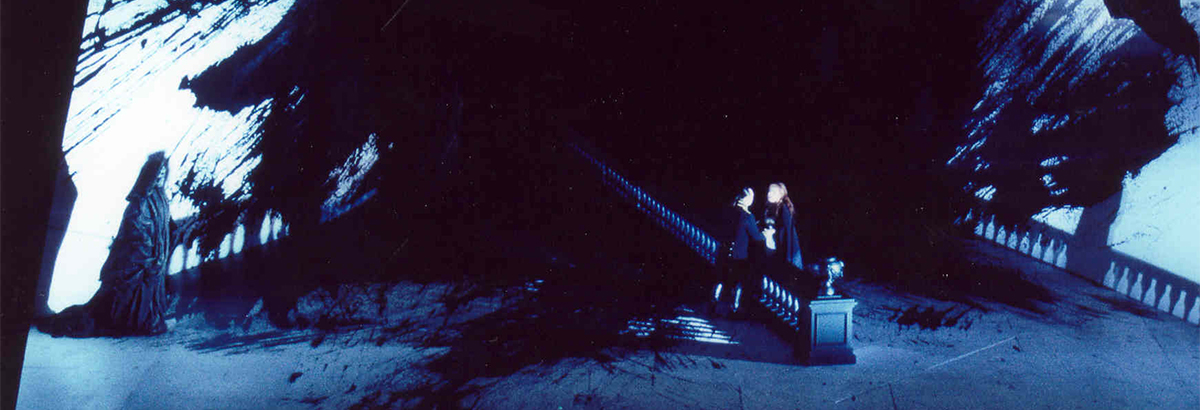October 23, 2020
Operatic chills and thrills
Just in time for Halloween, take a look back at some of the spookiest operas that have graced our stage. From witches and ghosts to murderous barbers, this list is sure to get you in the spirit (👻) of the season. Scroll to the end for a Spotify playlist of some of our favorite haunting melodies from these eerie operas!
Macbeth
Double, double toil and trouble; fire burn and caldron bubble. The three witches in Shakespeare's "Scottish Play" are known to be tremendously powerful and utterly wicked. They appear multiple times in Verdi's retelling of the classic tale, preying on Macbeth's insecurities and his lust for power. The Weird Sisters predict the future and it's not a happy one for our title character.
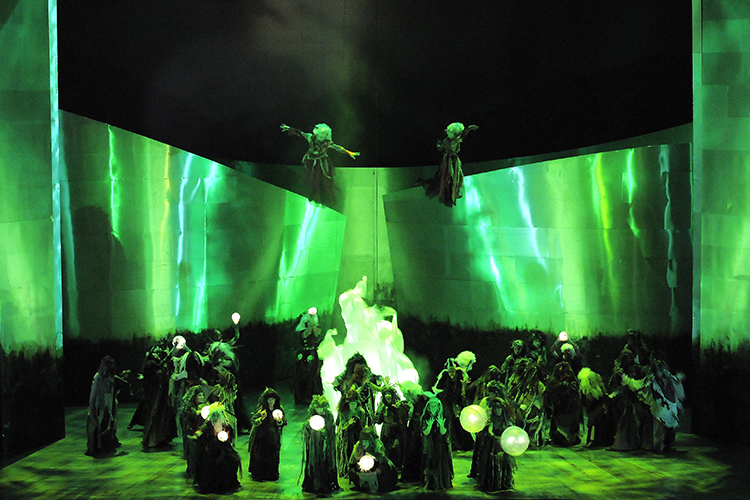
Our 2010/11 production of Verdi's Macbeth, directed by Barbara Gaines.
The Queen of Spades (Pique Dame)
What would you do if the ghost from your past came back to haunt you? In Tchaikovsky's bleak romance, The Queen of Spades, the elderly Countess is literally scared to death by Hermann. She returns—either as a ghost from beyond the grave, or a figment of Hermann's tortured imagination—to haunt her killer's dreams and to gloat at his own downfall.
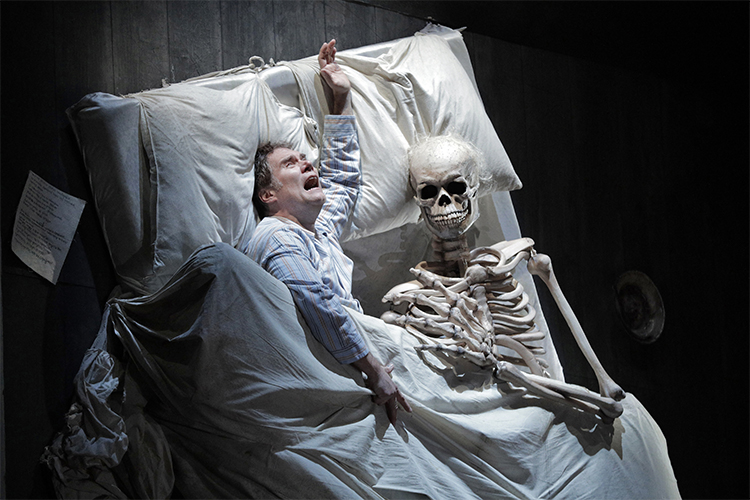
Brandon Jovanovich as Hermann in our 2019/20 production of Tchaikovsky's The Queen of Spades.
Rusalka
This haunting Czech opera has witches, sprites, and gnomes, but it's the humans you have to watch. When the title character, a water nymph, falls in love with a handsome prince, she trades her voice to the witch Ježibaba in exchange for mortality. When she is rebuked by her love, Rusalka returns to the water before killing the repentant Prince with her kiss, ultimately bringing him peace in death.
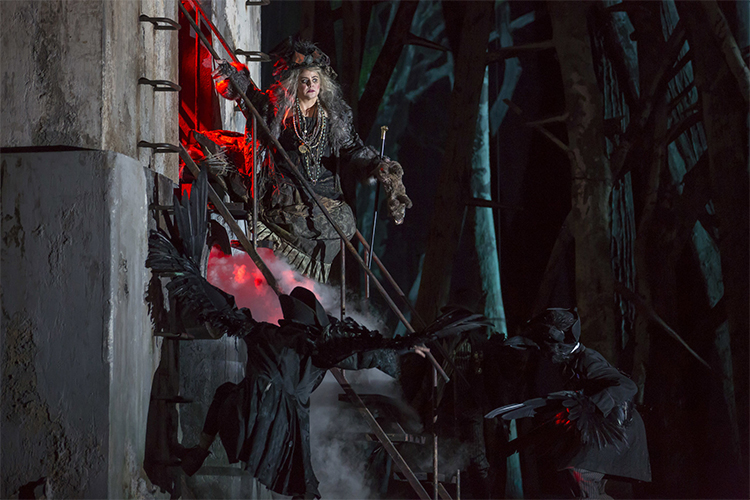
Jill Grove as Ježibaba in our 2013/14 Season production of Dvořák's Rusalka.
Sweeney Todd: The Demon Barber of Fleet Street
Attend the tale of Sweeney Todd! While often pigeonholed as a musical, Stephen Sondheim's Sweeney Todd has all the makings of a grand opera. In our 2002/03 production, the great bass Bryn Terfel took on the role of the Demon Barber of Fleet Street. Serving pies of anyone, to anyone, Sweeney and his partner in crime, Mrs. Lovett have the highest body count of the list.
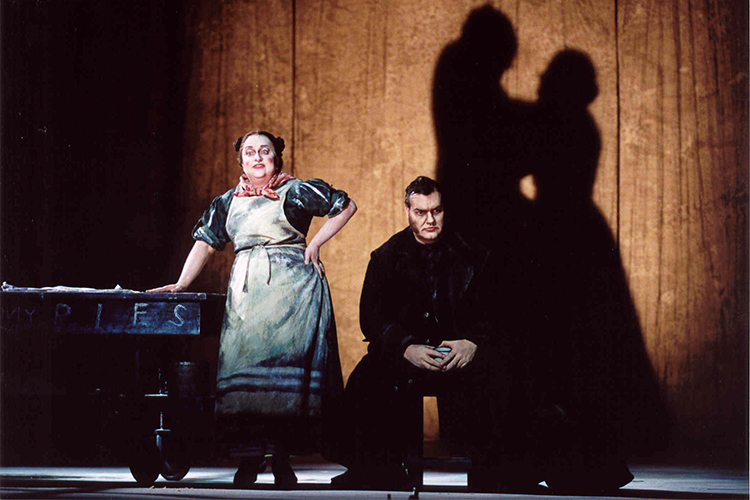
Bryn Terfel in the title role and Judith Christin as Mrs. Lovett in our 2002/03 production of Sondheim's Sweeney Todd: The Demon Barber of Fleet Street.
Faust
A deal with the devil, you say? An aging philosopher gets more than he bargained for when he sells his soul to the devil in exchange for eternal youth. Between the public prophecies of death and doom, and galavanting with demons, Méphistophélès and Faust are far from the most popular guys in town. In the end, we narrowly avoid a Rosemary's Baby-situation when Marguerite falls pregnant with Faust's child. Thankfully, all ends (somewhat) happily in this Gounod opera as Marguerite's soul is snatched from Méphistophélès' clutches by a heavenly chorus of angels.
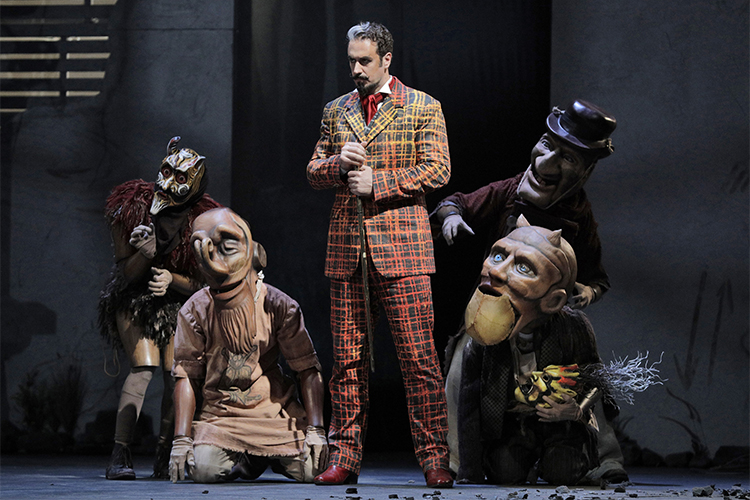
Ryan Opera Center alumnus Christian Van Horn as Méphistophélès' in our 2017/18 production of Gounod's Faust.
Don Giovanni
In the opening of this Mozart opera, we see the murder of The Commendatore at Don Giovanni's hands. After a lifetime of philandering and lawlessness, the title character is confronted by his sins in a very dramatic way. The ghost of The Commendatore rises from the grave in the form of a statue. Instead of being suitably scared, the haughty lothario invites the statue to dinner. When he arrives, Don Giovanni is dragged to hell by his ghostly dinner guest in one of opera's greatest finales.
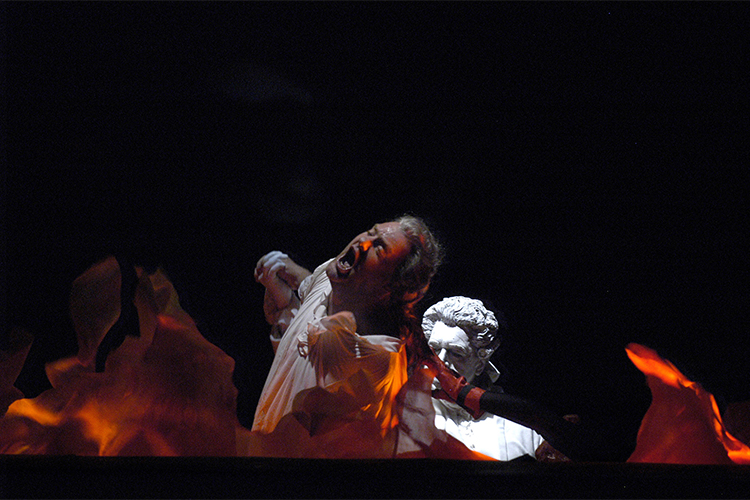
Andrea Silvestrelli as The Commendatore and Bryn Terfel in the title role of our 2004/05 production of Mozart's Don Giovanni.
Hansel and Gretel (Hänsel und Gretel)
"Nibbling, nibbling, little mouse! Who's nibbling on my little house?" This is one house you really want to avoid while trick or treating. The classic fairytale of two children lost in the woods is brought to new heights with Humperdinck's energetic score. Its famed witch's ride—"Der Hexenrit"—will have you grabbing your broomstick, firing up the oven, and whipping up a batch of spicy gingerbread kids (actual children and witchcraft are not necessary for this tasty recipe from tasteofhome.com).
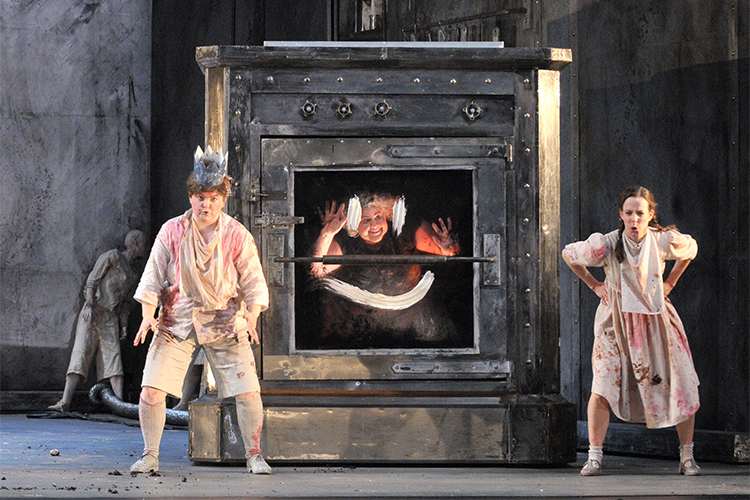
Ryan Opera Center alumna Elizabeth DeShong as Hansel, Maria Kanyova as Gretel, and Jill Grove as the Witch in our 2012/13 production of Humperdinck's Hansel and Gretel.
The Flying Dutchman (Der fliegende Holländer)
What's spookier than a ship crewed entirely by ghosts? In Wagner's The Flying Dutchman, the title character is cursed to endlessly roam the sea aboard a ghostly ship for having defied God. Every seven years, he is able to go ashore to seek redemption through love. When he rashly judges the one woman who could save his soul, she throws herself into the ocean as he sails away into the mist.
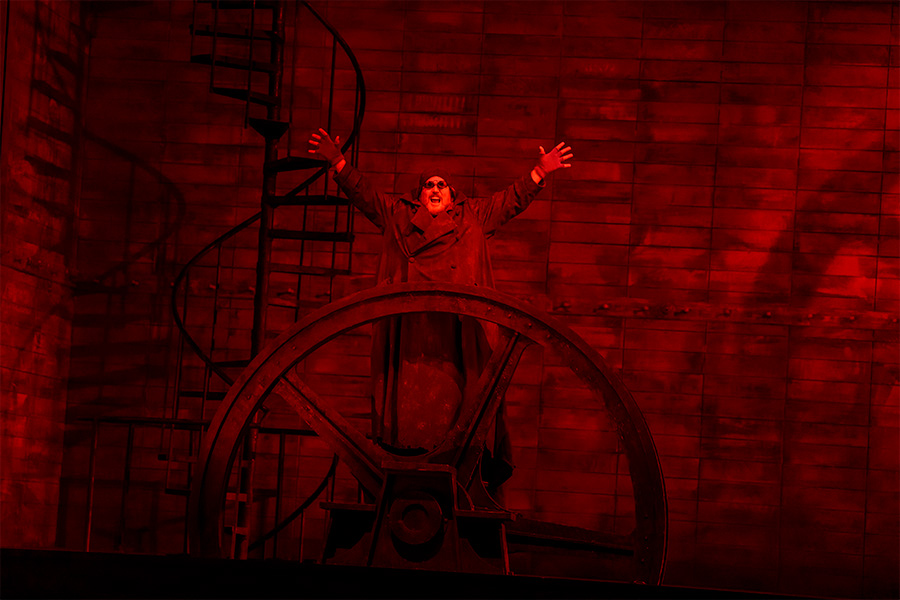
Tomasz Konieczy as The Dutchman in Lyric's 2023/24 production of Wagner's The Flying Dutchman.
A Masked Ball (Un ballo in maschera)
A fortune teller accused of witchcraft, an impossible romance, a masquerade ball, and murder—what more could you ask for in a Verdi opera? Dark, stormy orchestrations meld with french-tinged romance in this dramatic tale.
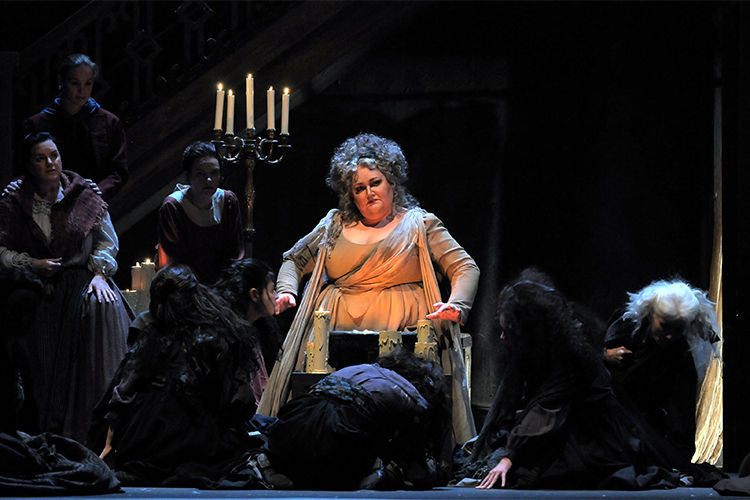
Stephanie Blythe as Ulrica in our 2010/11 production of Verdi's A Masked Ball.
Elektra
Blood. And lots of it. This story, based in Greek mythology, is a 90-minute operatic thrillride. Strauss's hair-raising score is as gruesome as it gets. The axe-wielding Elektra is obsessed with revenge following the assasination of her father Agamemnon at the hands of her mother, Klytämnestra, and her mother's lover, Aegisth.
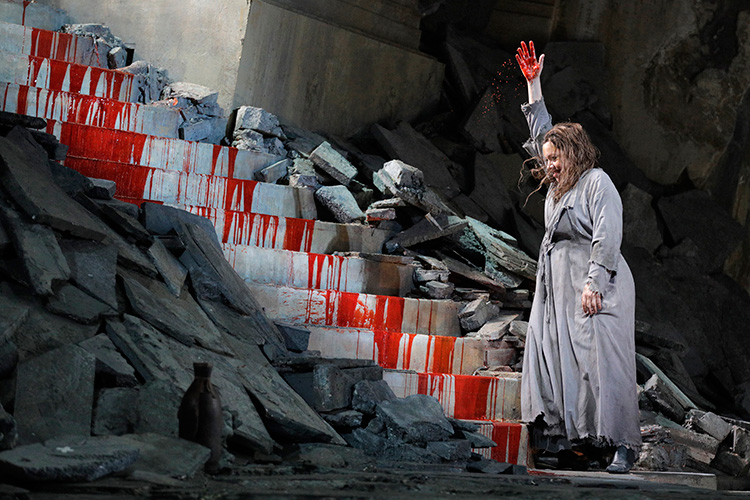
Nina Stemme in the title role of our 2018/19 production of Strauss's Elektra.
